The story of cardamom is as rich and varied as its flavour. Native to the evergreen forests of India, this spice is now widely grown in Guatemala, which has become the largest producer and exporter. However, it's in South Asian and Middle Eastern cuisines that cardamom's enigmatic flavour is most celebrated. As part of the ginger family, cardamom has been used for centuries, not just for its taste but also for its ability to enhance the sensory experience of food, making every bite more aromatic and invigorating than the last.
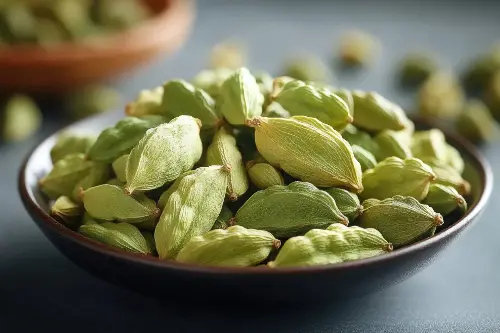
The Allure of Cardamom’s Flavour and Uses
Cardamom's flavour profile is complex and difficult to describe with mere words. It is simultaneously sweet and spicy, with hints of lemon and mint, creating a warm and elevated taste sensation. This versatile spice is foundational in famous dishes like Indian masala chai and Swedish kardemummabullar (cardamom buns), signifying its global culinary reach. Whether it’s ground into powders, used whole to infuse dishes, or even incorporated into modern cocktails, cardamom carries the ability to transform and lift recipes with its distinctive taste.
Cardamom’s Nutritional Benefits
Eager to add more to its repertoire than just good taste, cardamom also presents a host of health benefits. Notably, it contains compounds that may help fight inflammation. Its antioxidant properties are reputed for curbing down the oxidative stress in your body, and it's been used in traditional medicine to promote digestive health. In the battle for good oral health, cardamom might be your unexpected ally as it fights bacteria that cause dental decay and gum disease.
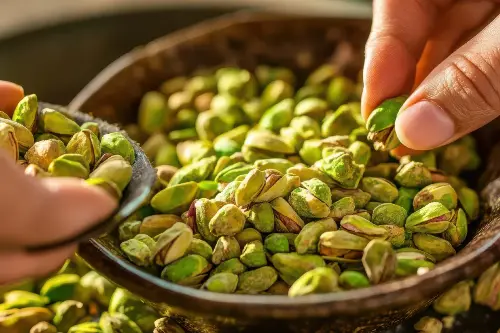
A Boost for Your Digestive System
One of the most renowned uses of cardamom is in aiding digestion. Its essential oils can trigger the secretion of bile acid in the stomach, thus benefiting digestion and reducing the risks of stomach ulcers. An after-dinner cardamom-infused tea is not just a tradition but also a potentially beneficial practice for soothing the stomach and aiding the digestion process.
Support for Detoxification and Diuretic Action
In the realm of detoxification, cardamom shines as a natural diuretic, helping your body to eliminate waste through urination. Regular consumption of this spice might contribute to flushing out toxins from the kidneys, liver, and urinary tract, supporting your body's natural detoxification processes and fostering overall health.
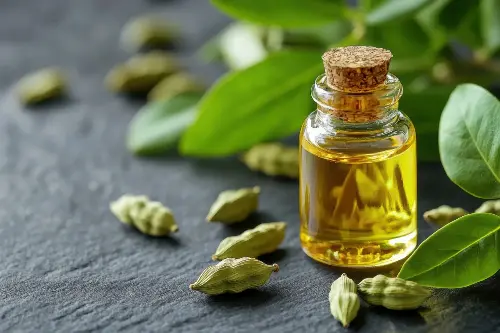
Cardamom for Respiratory Relief
Breathing easier may also be on the list of cardamom's benefits. It's long been used as a natural remedy to enhance breathing and oxygen use. The spice might help relax your airway, which could be beneficial for people suffering from asthma or who are experiencing shortness of breath.
Cognitive Benefits and Beyond
Mind your mind with cardamom too! Some studies suggest that the spice may have cognitive health benefits, potentially improving memory and the ability to process visual and auditory stimuli. While further research is needed to conclusively prove these effects, incorporating cardamom into your diet could be a delicious way to support your brain health.
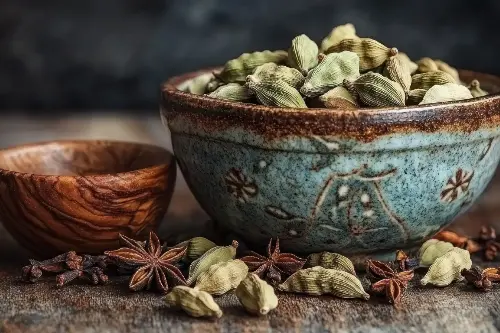
Incorporating Cardamom into Your Diet for a Nutritional Boost
Now that we've established the promising benefits of cardamom, let's talk about including it in your regular diet. Fortunately, this is where the fun really begins. You can start your day with a sprinkle of cardamom in your morning coffee or tea for a refreshing zing. Savoury dishes like curries and rice can be enhanced with a touch of cardamom, while sweets can gain a new depth of flavour with this aromatic spice. Remember, a little goes a long way due to its strong flavour.
Cardamom in Contemporary Cuisine
Cardamom has found its way into modern cooking and mixology, adding a twist to contemporary dishes and craft cocktails. Innovative chefs and bartenders are increasingly using cardamom to create unique, flavourful experiences that surprise the palate. From cardamom-infused desserts and savoury rubs for meats to its infusion in cocktails and non-alcoholic beverages, the possibilities are endless.
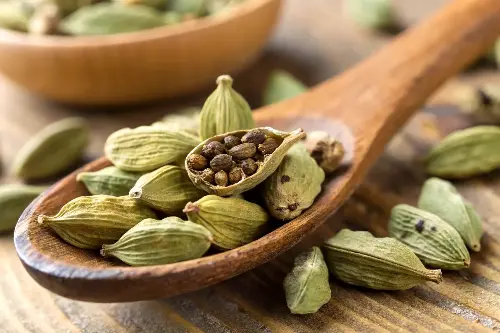
The Sustainability of Cardamom Cultivation
With its growing popularity, sustainability concerns around cardamom cultivation have arisen. However, measures are being taken in many cardamom-producing countries to ensure that farming practices are environmentally friendly and sustainable. This includes shade-growth under forest canopies, organic farming practices, and fair trade standards that also help improve the livelihoods of cardamom farmers.
